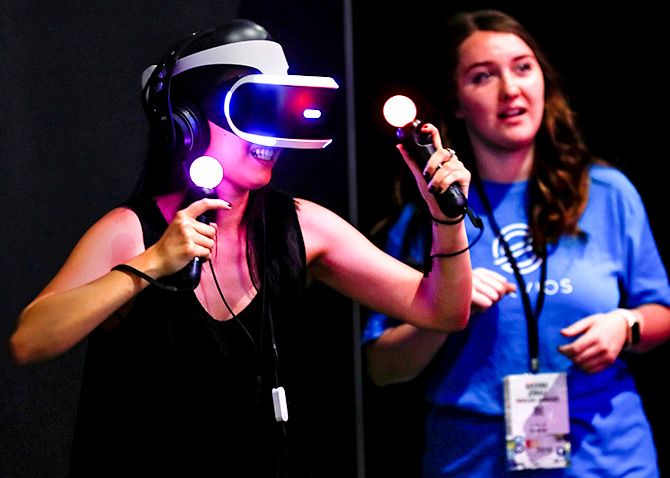A new study has revealed that video games, in combination with fitness coaching and a step tracker, helped overweight children lose weight, lower their blood pressure and cholesterol.

Photograph: Mike Blake/Reuters
Cheer up video game lovers!
According to a new research, video games can help improve the health in obese children.
The new study from LSU's Pennington Biomedical Research Center showed for the first time that video games, in combination with fitness coaching and a step tracker, helped overweight children lose weight, lower their blood pressure and cholesterol and increase their physical activity.
"Kids who gain excessive weight and are not physically active can develop early signs of heart disease and diabetes. They may also struggle every day with asthma, sleep apnea, and the other psychological and health challenges that excess weight and obesity can bring," said Dr Amanda Staiano, study's primary investigator.
"Screens are everywhere in our lives, and they are here to stay. Kids spend half their waking hours in front of screens," said Dr Staiano.
"I'm looking for ways to use those screens -- smartphones, computers, televisions and tablets -- to incorporate more physical activity into kids' lives."
The GameSquad study enrolled 46 children ages 10 to 12 who were overweight or had obesity.
The gaming group was encouraged to meet the national recommendations of 60 minutes per day of physical activity. The children received an Xbox 360, Kinect and four exergames (Your Shape: Fitness Evolved 2012, Just Dance 3, Disneyland Adventures and Kinect Sports Season 2) and were asked to play these at their home with a friend or family member for six months.
They also received a "challenge book" to complete three one-hour gaming sessions each week and a Fitbit to track their steps each day.
Each child and parent or parents also took part in regular video chats over the video game console with a Pennington Biomedical fitness coach to monitor their progress.
The control group members were not asked to make any changes in their behavior. These families received the exergames and gaming console at the end of the six-month study.
Twenty-two of the 23 families in the gaming group finished the six-month program.
Children and parents in the gaming group completed 94 per cent of the gaming sessions and attended 93 percent of the video-chat sessions.
"When you don't intervene with kids who are overweight, often their health risk factors and health behaviors worsen over time," said Dr Staiano.
"So, unfortunately, we weren't surprised to see that kids in the control group increased blood pressure and cholesterol and decreased physical activity over the six-month period."
Findings about children in the gaming group:
- Reduced their body mass index by about 3 per cent while the control group increased their BMI by 1 percent.
- Reduced their cholesterol by 7 percentiles while the control group increased cholesterol by 7 percentiles. In other words, the kids in the gaming group remained in the healthy range. The increase in the control group's cholesterol levels pushed them into the borderline category for high cholesterol.
- Increased their physical activity by 10 per cent while the control group decreased their physical activity by 22 per cent.
- Increased their self-efficacy, or their belief about personal control, toward physical activity, which predicts exercise adherence.
The study has been published in the journal Pediatric Obesity.











